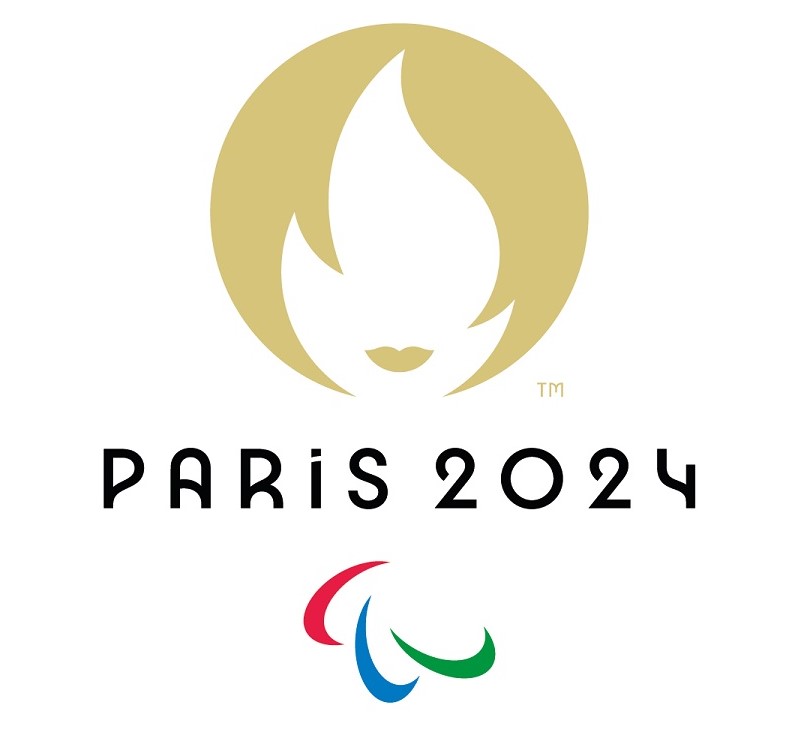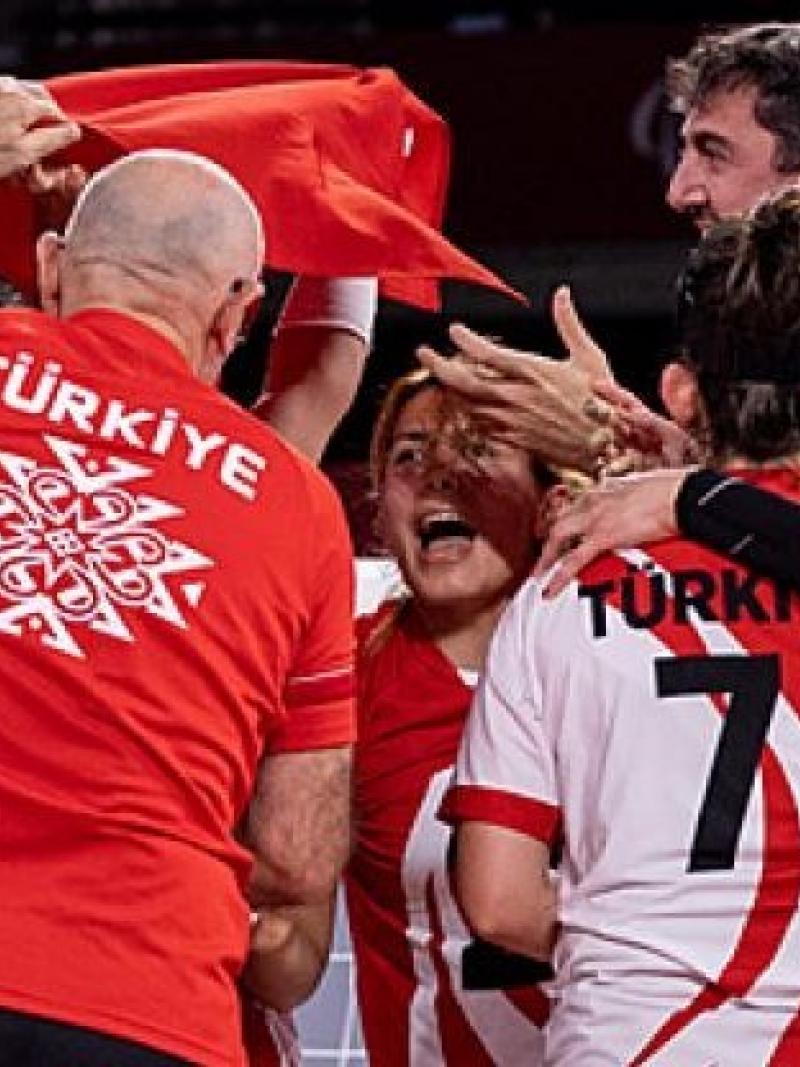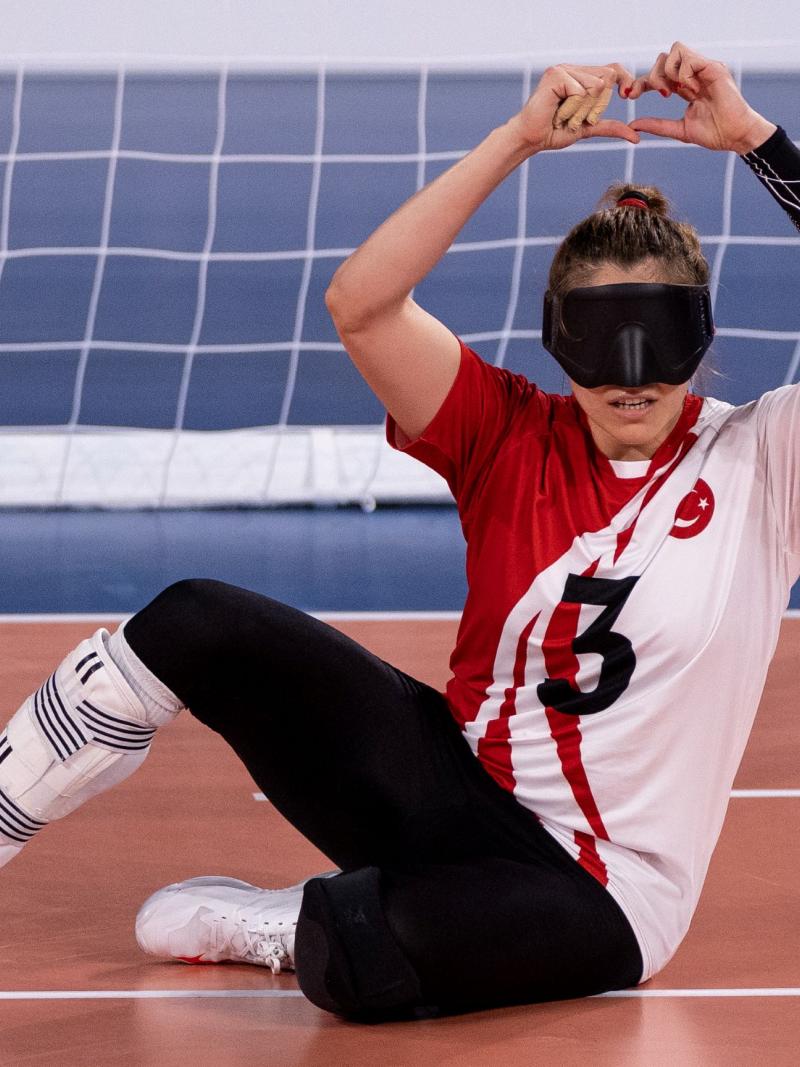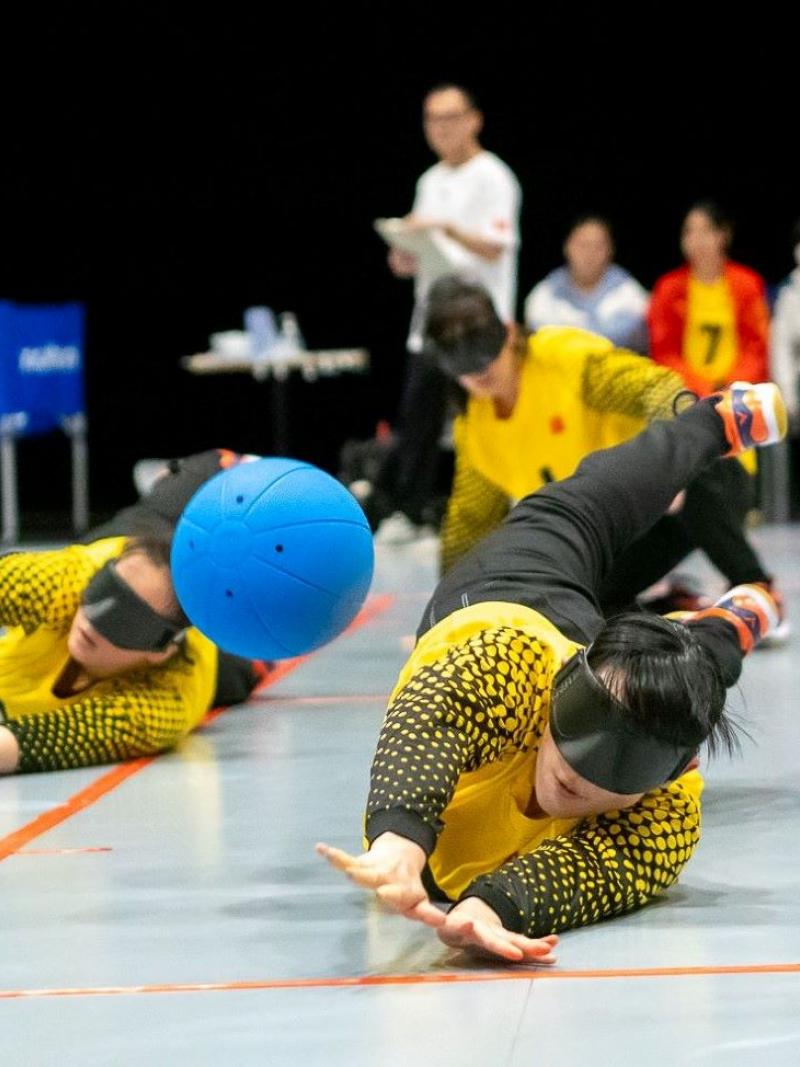Paris 2024: Sevda Altunoluk makes history with third goalball gold
Reigning women's champions Turkiye beat Israel to clinch goalball gold 05 Sep 2024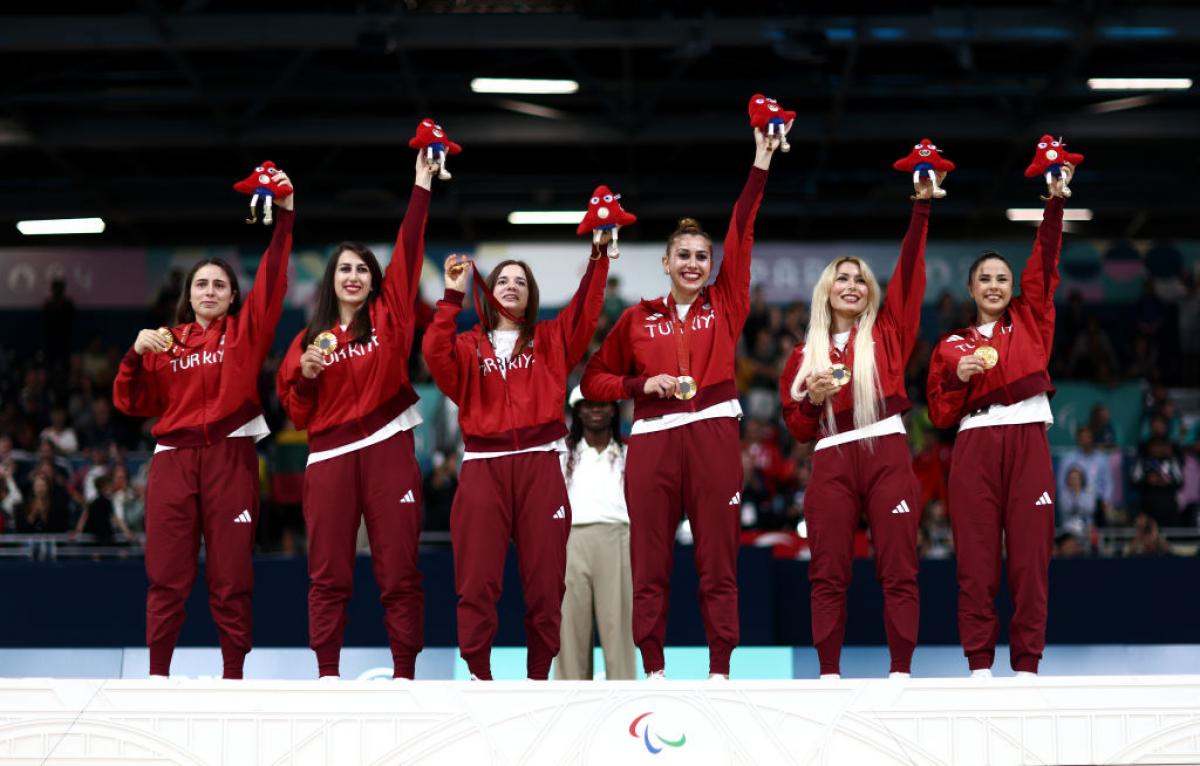
Turkiye's Sevda Altunoluk made history as the only athlete in women's goalball to ever win three Paralympic golds.
Turkiye beat Israel 8-3 in the women's goalball gold medal match at South Paris Arena 6 on 5 September at the Paris 2024 Paralympic Games.
Altunoluk is the only member of the Turkiye women's team to be part of the squad at the Rio 2016, Tokyo 2020 and Paris 2024 Paralympic Games, leading her team to gold each time. In this game her role was key, with her throwing four of the team's eight goals.
"Three finals, three championships, three gold medals.
"I can't explain my feelings because I am so happy and the feeling is so deep," said Altunoluk.
Altunoluk has been centre stage from the moment she first threw a goalball at the age of 12, displaying a rare power. To mark her successful Para sport career she was also named among the BBC’s 100 most influential women of the year in 2021.
She went into the gold medal match confident.
"I actually knew we were going to become the champions yesterday (after beating Brazil in the semifinal). Even when the tournament started we all knew we had the chance to become the champions," Altunoluk said.
Turkiye's win makes them the only women's team to have won three Paralympic goalball gold medals since the women's event debuted at the Stoke Mandeville & New York 1984 Paralympic Games, with the USA and Canada each securing two gold medals to date.
Injury upset
Altunoluk started crying on the field, and it was presumed to be because of celebration, but she explained that wasn't the only reason.
"Actually, when I started crying it was because I had an injury. I knew we were going to become champions so I guess that's why I cried also," she said.
"I felt the injury but I wanted to continue because I wanted to fight for my country. My feelings for my country are bigger than the pain."
She felt that she had 'perhaps' turned an ankle and felt resulting ankle and knee pain: "a lot of pain".
Family affair
Her younger sister Sevtap Altunoluk is on the goalball team with her, making it a special moment for the family.
“It is a great honour to have her on the team
"We have been playing for the same club since Sevtap started playing sports and we’ve never played against each other. If that happened, we would have to be professional," Sevda Altunoluk said.
Sevtap was also part of the gold medal winning team in Tokyo.
"When I say Sevda, the first words that come to my mind are 'captain' and 'my queen'. I love her very much," Sevtap told the IPC.
Silver for Israel to bring attention to the sport
Although Israel's women's team lost to the reigning champions, it was their first time in a medal game for goalball, allowing them to bring home their country's first goalball medal with the silver.
Israel's Roni Ohayon explained the bittersweet moment, saying:
"I feel proud. Although the game wasn't the match we wanted, we think we did a great job but not the best. We can do much greater things... I still think I'm the best centre in the world."
"I feel a mix of emotion between disappointment, because we didn't get the gold, and proud and happy."
Her teammate Or Mizrahi believes bringing the silver medal home will bring extra attention to the Para sport, driving new blood and growth back home.
"Two days ago, three days ago, no one in Israel knew what goalball is, except our family and friends and those who know us.
"Now I don't think there's a house in Israel that doesn't know what goalball is, that doesn't know who we are, that doesn't know what we did."
"I hope this will help us to develop the game in Israel, to bring new, fresh blood into our lives and to be good for a long, long, long time," said Mizrahi.




